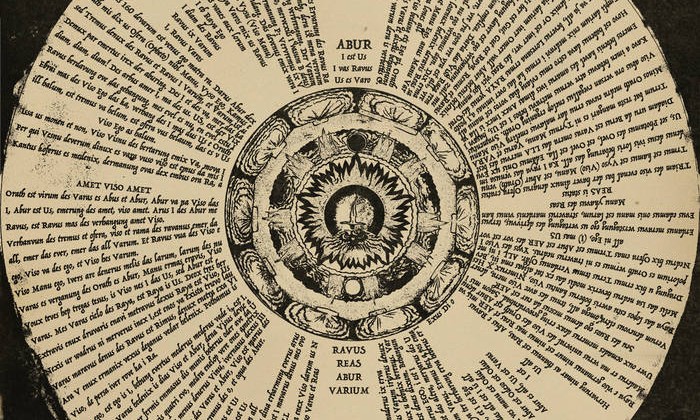“Music and metaphysics.“
In the early 00s, bands like Neurosis, ISIS and Rosetta crafted a vision of heavy metal that combined its intensity with the expansiveness of post-rock. The music enables the artist to paint on a blank canvas in every shade – as long as that shade is grey. The rules on structure, melody, and texture are loose, as long as it takes the listener to a dimly lit place. Any feeling of triumph comes in spite of the music’s inherent harshness. Post-metal has become well established genre, and Belgian band Pothamus is a growing force on the scene. Abur follows their 2020 debut release Raya and generally develops the band’s character. There are many similarities of dark textures and expansive songwriting, but the guitars are heavier and fuzzier, and the pagan aesthetic is now more compelling.
Across each track the bassline either throbs exclusively on one note (“Devarium”, “Savartuum” “Avur”, “Ykavus”), or varies across a small set (“Zhikhrta”, “Ravus”, “Abur”). The guitar and vocals layer on that one note and create dissonance around it, generally with individual notes rather than any full chords. As found in bands like Swans and Jesu (one could also compare Massive Attack‘s “Angel”), this minimal approach to songwriting and harmony creates a sense of dark foreboding. It is something the band sticks to almost religiously, crafting an impressive atmosphere, yet there are pitfalls to this approach which the band have fallen into.
The shifting textures in each song and across the album are felt most keenly through the presence or absence of percussion. The opening track “Zhihkarta” builds from minimal percussion into throbbing tribal drumming. The vocal calls evoke Wardruna, very much in keeping with the pagan aesthetic. Such drumming runs across the next track “Ravus”, as vocals alternate between the hellish growls and clean singing. “De-varium” has no percussion, providing a delicate, morose interlude, with vocal layers and a background shruti box.
Whilst the songwriting, production and aesthetic have strong potential, I felt there was not enough variety across the album to generate sustained interest. Their minimal approach backfires, especially if you come into the record with an ear towards hearing a ‘band’ rather than a ‘vibe’. This variation is also lacking between songs – for example, “Savartuum Abur” has a very similar texture and structure to “Zhikarta”, to the detriment of both tracks. “Ykavus” is well-placed in the album, but feels like a rehash of “De-varium”.
The final track “Abur” clocks in at over fifteen minutes. Pothamus show they can do long tracks well – the variations in intensity mean that it didn’t feel too drawn out. However, “Abur” felt so close to what we have heard so far that it ultimately brings nothing new to the table. As it arrives at the pivotal point of the record, it feels like a missed opportunity drawing itself out before your ears.
To its credit, Abur reveals a strong development of the band’s identity and aesthetic. It is well produced, carefully structured and balanced, with good variations in intensity and track length. However, the post-metal palette is far wider than what this album reveals. As niche as the genre is, the wider scene includes many bands that have innovated or impressed in the past year (especially A Swarm of the Sun, SUMAC and Inter Arma), so it becomes hard to recommend Abur except as an atmospheric piece. Finding a way to inject more variety whilst maintaining their unique focus on minimalism would take them many steps forward in the future.
5/10
Abur releases through Pelagic Records on the and can be pre-ordered here.

